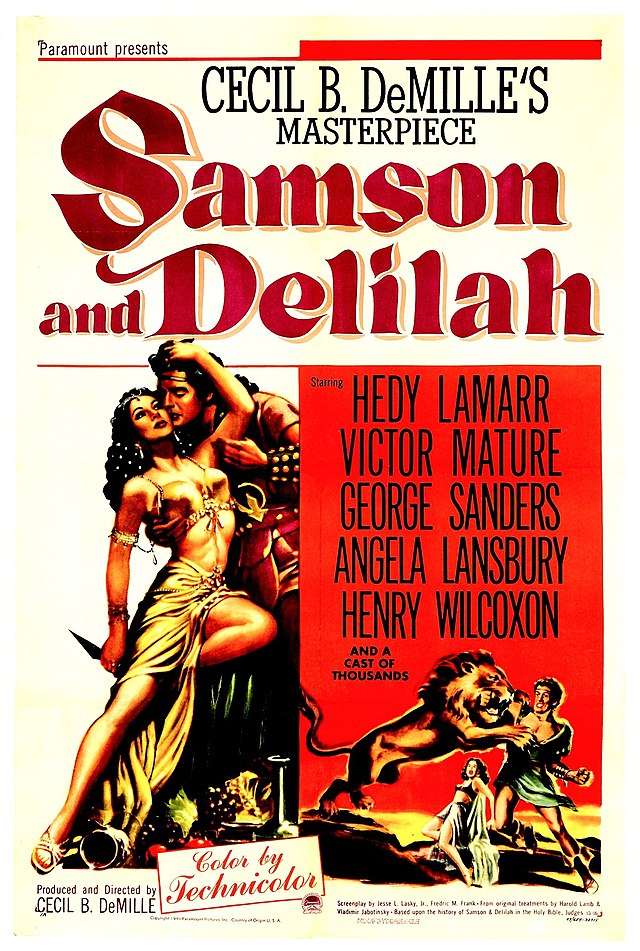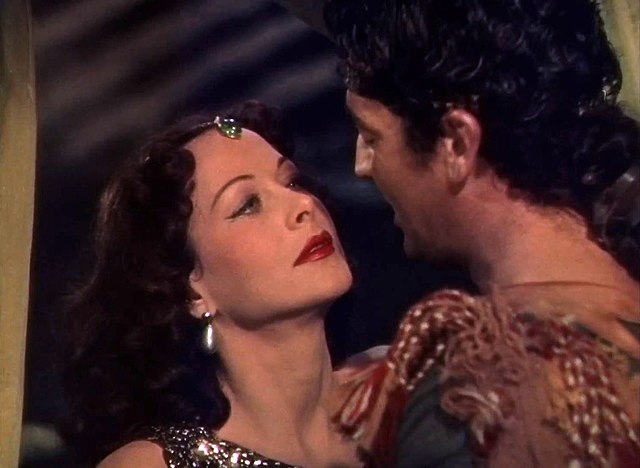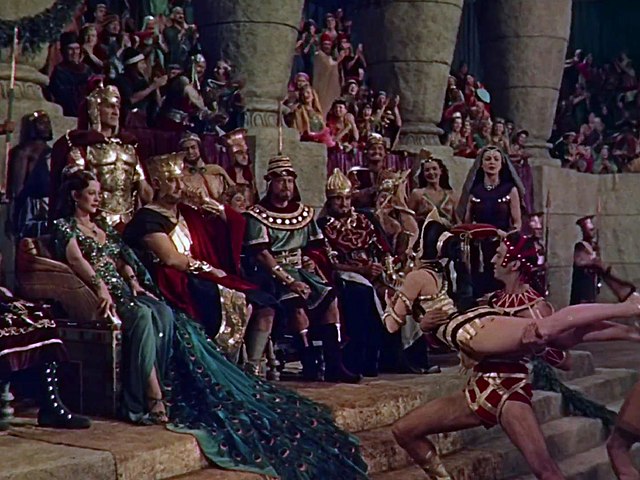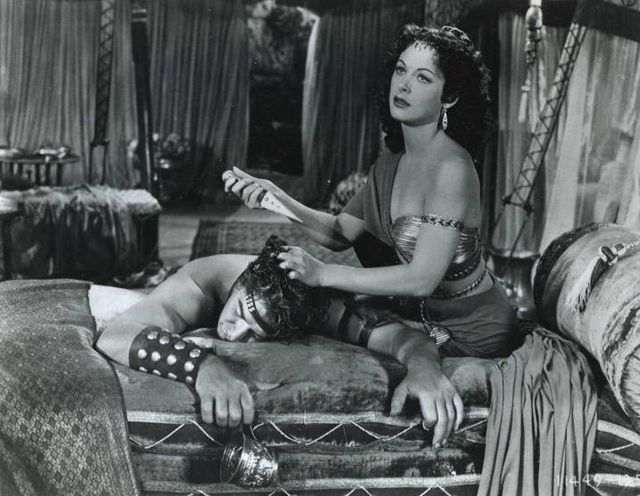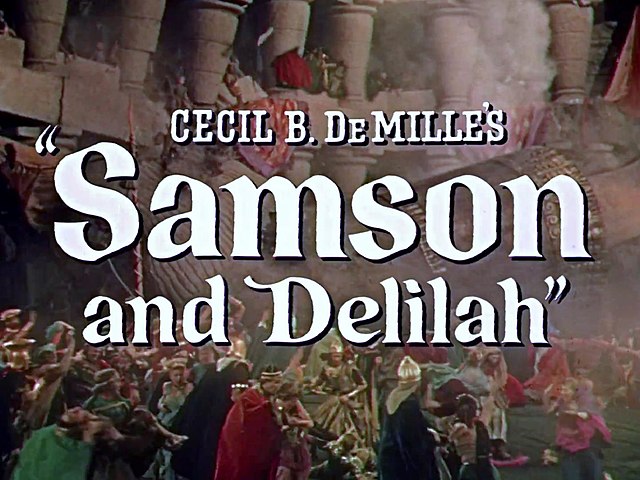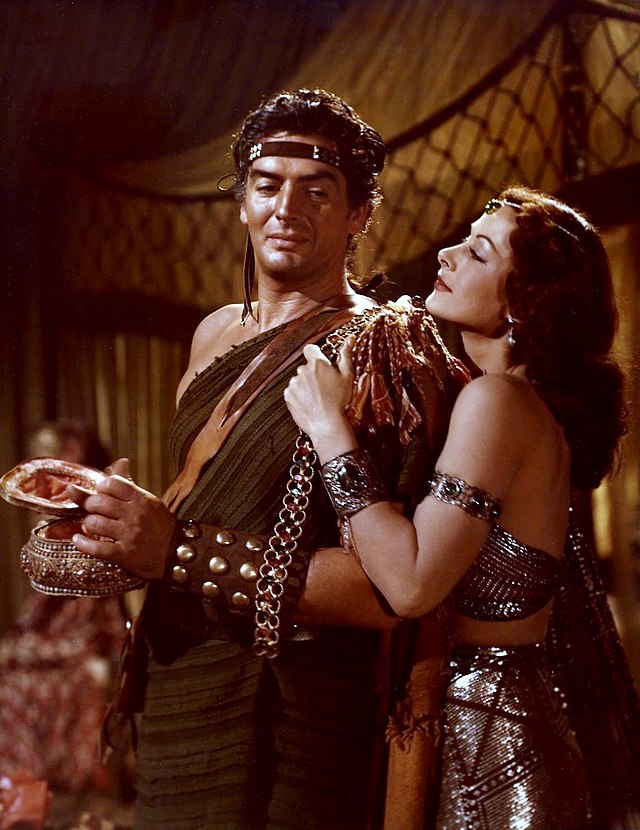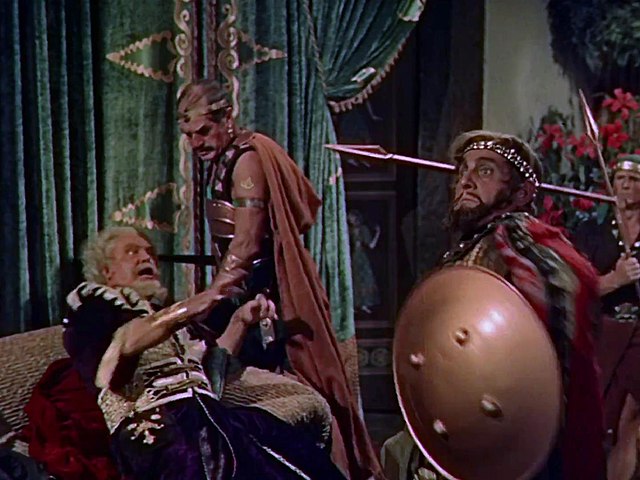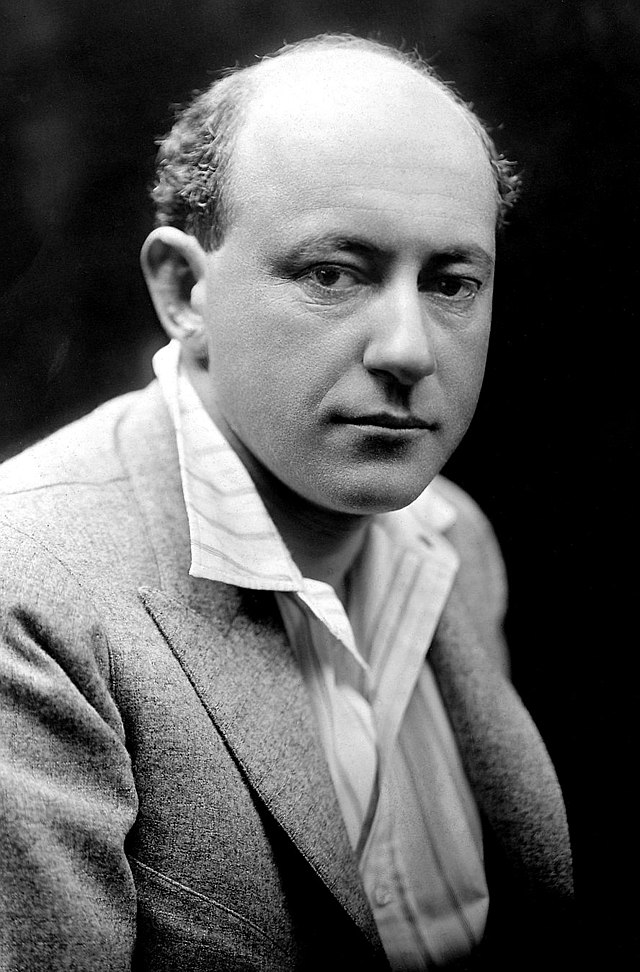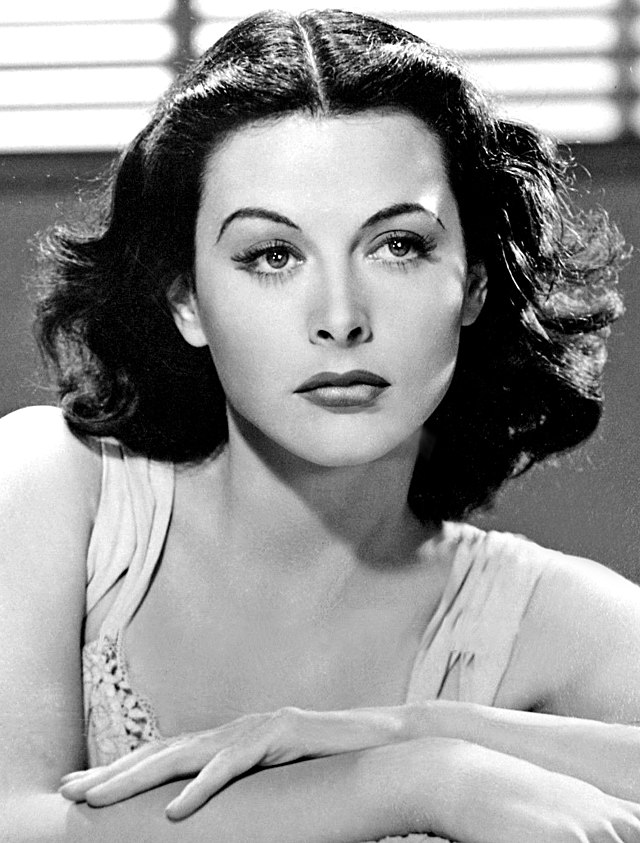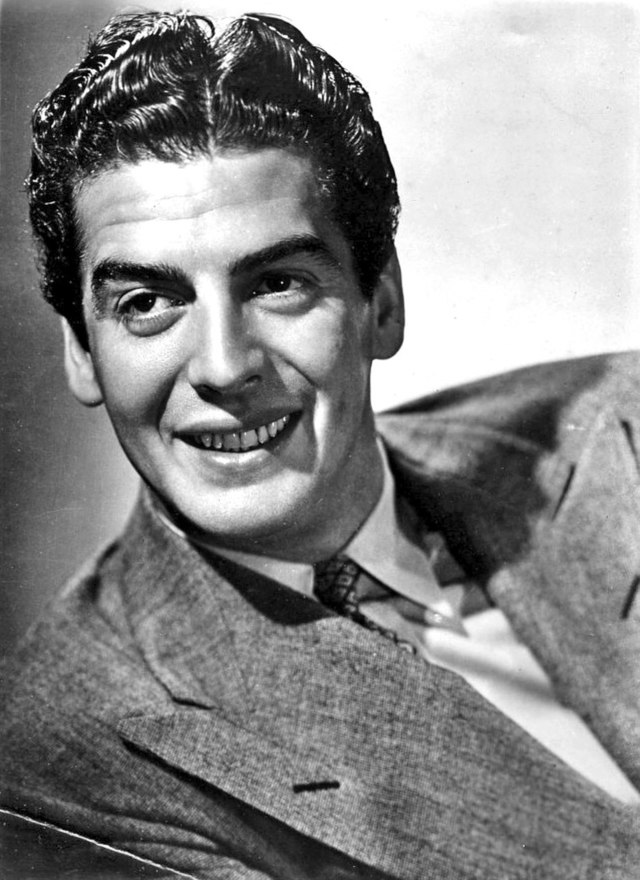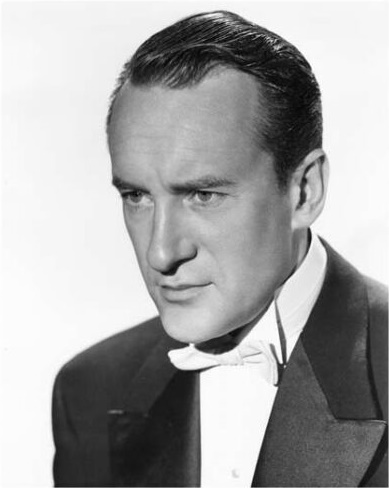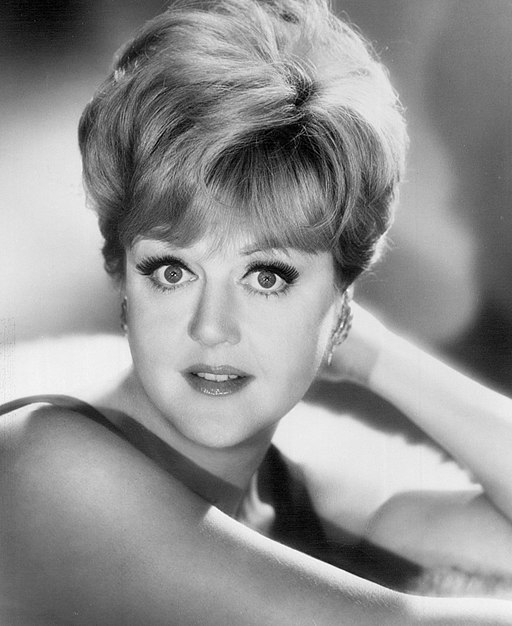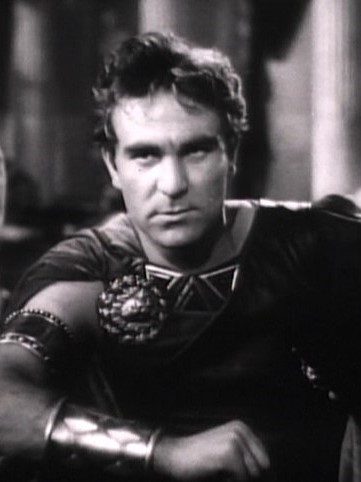Samson and Delilah - 1949
back| Released by | Paramount Pictures |
| Director | Cecil B. DeMille |
| Producer | Cecil B. DeMille |
| Script | Jesse Lasky Jr. and Fredric M. Frank |
| Cinematography | George Barnes |
| Music by | Victor Young |
| Running time | 134 minutes |
| Film budget | $3 million |
| Box office sales | $28 million |
| Main cast |
Samson and Delilah
A Grand Biblical Epic of Love, Betrayal and Redemption
Samson and Delilah is a classic historical drama that retells the biblical story of the powerful Israelite Samson and his tragic love affair with Delilah, who ultimately betrays him.
The film is noted for its lavish production, vibrant sets, and memorable performances, especially by Hedy Lamarr and Victor Mature. It was a box office hit and remains one of Cecil B. DeMille's most celebrated films.
Related
Samson and Delilah – 1949
Summary
Samson and Delilah tells the legendary story from the Old Testament about Samson, an Israelite warrior granted supernatural strength by God, and his ill-fated relationship with the seductive Philistine woman, Delilah. The narrative is set during a time when the Israelites are oppressed by the Philistines, a powerful civilization that uses force and manipulation to keep the Israelites under their control.
The film opens in the city of Gaza, where Samson’s strength and defiance of the Philistine overlords have made him a symbol of hope for his people. Samson first becomes infatuated with Semadar, a Philistine woman, much to the dismay of his fellow Israelites. He is captivated by her beauty, and despite the political and religious tensions between the Israelites and Philistines, he pursues her, leading to a sequence of conflicts that highlight Samson’s incredible strength. One notable example is the killing of a lion with his bare hands, a feat that astonishes both the Israelites and the Philistines.
However, Samson’s affection for Semadar is complicated by the presence of her sister, Delilah. Ambitious and cunning, Delilah becomes captivated by Samson’s power and allure, and her love for him soon turns into a dangerous obsession. After Semadar’s tragic death, Delilah is driven by a desire to control Samson and seeks revenge for what she perceives as his role in her sister's demise. Delilah offers her loyalty to the Philistine rulers, promising to help them discover the secret of Samson's strength in exchange for wealth and power.
Delilah eventually seduces Samson, and he is unable to resist her charms. She uses her beauty and wit to persuade him to reveal that his strength comes from his uncut hair, which is a symbol of his devotion to God. Once she learns this, Delilah arranges for his hair to be cut while he sleeps, leaving him powerless. Betrayed and humiliated, Samson is captured by the Philistines, who gouge out his eyes and imprison him, forcing him to labor like a common slave.
The climax of the film occurs when Samson, now blind and humbled, prays to God for one final burst of strength to defeat his enemies. Brought to the Philistine temple to be mocked in front of a large gathering, Samson, in a final act of sacrifice, pulls down the temple pillars, collapsing the structure and killing himself along with the Philistine rulers, including Delilah. His death is a powerful act of redemption and liberation for his people, as it destroys the oppressive Philistine leadership, symbolizing his restored faith and devotion to God.
Analysis
Samson and Delilah is a film that reflects Cecil B. DeMille’s flair for grand storytelling and elaborate production. The film’s vivid sets, lush costumes, and dramatic pacing draw viewers into a world of ancient passions, cultural clashes, and moral dilemmas. It’s a classic example of DeMille’s ability to transform biblical narratives into Hollywood epics, blending romance, action, and religious themes.
Themes
The primary themes of the film include betrayal, redemption, and the dangers of pride. Samson’s story is a cautionary tale about the pitfalls of hubris; his initial arrogance and disregard for his people’s plight lead him into a trap laid by Delilah. The film explores the destructive nature of love when tainted by manipulation, as Delilah’s love for Samson is both genuine and resentful. She sees him as an ideal and an adversary, wanting both to possess and destroy him.
Faith and divine power are central themes as well, underscoring Samson’s transformation from a warrior who initially relies solely on his strength to a man humbled by his weaknesses. His final act of bringing down the Philistine temple reflects his return to God and his acceptance of his true purpose as a liberator of his people. This message is especially powerful within the context of the film's post-World War II release, where audiences were grappling with themes of sacrifice, heroism, and redemption.
Cinematic Elements
DeMille’s production brings the ancient world to life with extravagant set pieces and a sweeping musical score by Victor Young that heightens the film’s grandeur. The cinematography by George Barnes captures both the intimacy of Samson and Delilah’s relationship and the vast scale of the epic battle sequences, especially in the iconic temple scene. The color palette and lighting are intentionally vivid, creating a sense of heightened reality that makes the story feel both larger than life and rooted in mythical timelessness.
Victor Mature and Hedy Lamarr deliver performances that underscore the characters’ complex dynamics. Mature’s portrayal of Samson conveys both physical strength and vulnerability, while Lamarr’s Delilah is a study in contrast—she’s seductive yet ruthless, compassionate yet driven by jealousy and revenge. The chemistry between them amplifies the tension and emotional stakes, making Delilah’s betrayal all the more impactful.
Impact and Legacy
Samson and Delilah was a box office success and received acclaim for its production value and performances, particularly Lamarr’s portrayal of Delilah, which became one of her most iconic roles. The film’s success helped pave the way for other biblical epics of the 1950s, including The Ten Commandments (also directed by DeMille) and Ben-Hur. It remains a significant example of mid-20th-century Hollywood's fascination with religious and historical epics.
The movie also resonated with contemporary audiences who saw in Samson’s struggles a reflection of the human condition: the struggle between faith and desire, strength and vulnerability, independence and submission to a higher power. The film’s story of personal sacrifice and redemption had universal appeal, as audiences admired Samson’s journey from a powerful, flawed man to a hero who ultimately fulfills his destiny.
In conclusion, Samson and Delilah is more than just a spectacle; it’s a narrative about the complexities of human emotion and the strength that can arise from faith and redemption. DeMille’s interpretation of the biblical tale balances romance and tragedy with action and moral complexity, solidifying the film as a timeless cinematic masterpiece.
Classic Trailer Samson and Delilah 1949
Full Cast
· Hedy Lamarr as Delilah
· Victor Mature as Samson
· George Sanders as The Saran of Gaza
· Angela Lansbury as Semadar
· Henry Wilcoxon as Prince Ahtur
· Fay Holden as Hazelelponit (Samson's mother)
· Julia Faye as Haisham (Semadar’s maid)
· Russell Tamblyn as Saul (young Israelite)
· Olive Deering as Miriam (Israelite woman)
· William Farnum as Tubal
· Lane Chandler as Teresh
· Moroni Olsen as Targil (Philistine)
· Arthur Q. Bryan as Fat Philistine Merchant
· Boyd Davis as Keeper of the Gate
· John Miljan as Lord of Ashdod
· Francis McDonald as Storyteller
· Almira Sessions as Garmiskar (woman of Gaza)
· Fritz Leiber as The Beggar
· Pedro de Cordoba as Lesh Lakish
· Frank Wilcox as Leader of Soldiers
Memorable Performance of Hedy Lamarr
Hedy Lamarr’s performance as Delilah in Samson and Delilah (1949) is considered one of her most memorable and iconic. Her portrayal is striking, capturing the duality of Delilah’s character with a blend of seduction, intensity, and inner conflict. In a role that could easily have been portrayed as a one-dimensional villain, Lamarr imbues Delilah with a complex, multi-layered personality that reflects both her vulnerability and her dangerous allure.
From the beginning, Lamarr’s Delilah exudes an effortless, captivating beauty that commands attention, making it easy to understand why Samson is drawn to her. Her gaze is hypnotic and knowing, conveying the powerful hold she has on Samson and her awareness of her own seductive influence. Throughout the film, Lamarr masterfully wields Delilah’s sensuality as both a weapon and a form of power. Yet she never overplays this aspect, allowing her character’s deeper motivations to simmer beneath the surface.
Lamarr captures Delilah’s evolution from a woman who initially appears jealous and vengeful to one who is ultimately tormented by the consequences of her actions. Her jealousy over Samson’s affection for her sister, Semadar, is portrayed with a subtle bitterness; Lamarr’s performance reflects a smoldering resentment that feels both personal and profound, hinting at Delilah’s insecurities and longing for Samson’s devotion.
As the plot unfolds, Lamarr’s Delilah becomes more complex, particularly in her scenes with Victor Mature as Samson. In their interactions, she shifts seamlessly between passion and cunning, making her betrayal of Samson feel more tragic than malicious. Her seduction of Samson to reveal the secret of his strength is one of her standout moments in the film. Lamarr’s approach to this pivotal scene is calculated yet tender, showing Delilah’s struggle with her conflicting emotions. This nuanced approach elevates her character beyond the archetype of a simple femme fatale, painting her as a woman trapped by her own ambitions, desires, and resentment.
One of the film’s most powerful moments comes when Delilah finally realizes the impact of her actions. Lamarr allows a flicker of regret to cross her face, giving the audience a glimpse into Delilah’s remorse and inner turmoil. Her final moments, as she watches Samson destroy the Philistine temple, capture a mix of horror, sorrow, and perhaps even a twisted admiration for the man she loved and betrayed. Through these fleeting expressions, Lamarr conveys the depths of Delilah’s emotions in a way that leaves a lasting impression.
Lamarr’s ability to balance Delilah’s sensuality with her vulnerability, intelligence, and regret brought a unique depth to the character that has stood the test of time. Her performance transformed Delilah into more than a mere antagonist in Samson’s story; instead, she becomes a tragic figure in her own right, caught in the throes of passion, ambition, and the consequences of betrayal.
Notable Quotes from the Movie
· Delilah: "Oh, Samson. Your strength, that's what I love. Your strength that can lift me up and carry me like a child. Samson, what is the secret of your strength?"
· Samson: "My strength is a gift from God. A gift that will destroy all who betray me."
· Delilah: "With all my heart, I hate him. Yet with all my heart, I love him."
· The Saran of Gaza: "Love... hate... what are they to a ruler? Weapons to be used against those who have them."
· Samson: "Delilah, you've betrayed me! Why? Why did you do it?"
· Delilah: "Because I loved you, Samson. And because I hated you for not loving me."
· Miriam (to Samson): "Your strength has blinded you, Samson, just as surely as their hatred will blind you forever."
· Delilah (to Samson, during his capture): "Remember, I was your Delilah. You gave your strength for love."
· Samson (in prayer): "Lord God, remember me, I pray thee, and strengthen me only this once, O God."
· Delilah: "I am the woman who brought you to this. The woman who brought you down, Samson. And now, I am the woman who loves you more than her own life."
Classical Scenes from Samson and Delilah
Samson Slays the Lion
- This scene is one of the film’s early highlights, displaying Samson’s legendary strength when he encounters a ferocious lion in the wilderness. As the lion attacks, Samson wrestles it with his bare hands and kills it. The scene is intense and visually impressive, with Victor Mature convincingly portraying the immense power and confidence of Samson. DeMille used innovative effects for the time to make the lion's attack feel realistic, creating an unforgettable moment that sets the tone for Samson's physical prowess.
Samson’s Marriage Feast
- During the feast to celebrate Samson's marriage to Semadar, tensions between the Israelites and the Philistines come to a head. Samson poses a riddle to the Philistines, referencing his defeat of the lion: "Out of the eater came forth meat, and out of the strong came forth sweetness." When the Philistines cannot solve the riddle, Delilah manipulates Samson into revealing the answer. This betrayal leads to a fight, symbolizing the friction between Samson’s loyalty to his people and his susceptibility to Delilah’s charms. The sequence reveals Samson’s pride and Delilah’s cunning, underscoring the interpersonal tensions that drive the story.
Delilah Cuts Samson’s Hair
- This iconic scene is perhaps the most famous in the film, as Delilah finally betrays Samson after seducing him into revealing the secret of his strength—his uncut hair, a symbol of his covenant with God. While Samson sleeps, Delilah sorrowfully cuts his hair, rendering him powerless. Hedy Lamarr’s performance here is exceptional; her expressions convey a complex mix of guilt, anger, and remorse as she realizes the impact of her actions. The emotional tension in this scene makes it a standout moment in the film, both tragic and powerful.
Samson’s Capture and Humiliation
- After his hair is cut, Samson is captured by the Philistines, who mock and torture him, ultimately blinding him and putting him to hard labor. The filmmakers portray Samson’s suffering in a way that elicits sympathy, marking his fall from a powerful hero to a broken, humbled man. The scene is a crucial turning point, showcasing his vulnerability and highlighting the physical and emotional cost of his betrayal.
The Destruction of the Philistine Temple
- The climactic temple scene is one of the greatest moments of spectacle in Samson and Delilah. In this scene, the blinded Samson is brought to the Philistine temple to be humiliated before the rulers and the crowds. As he prays to God for one final act of strength, he pushes apart the massive temple pillars, causing the entire structure to collapse. The destruction is portrayed with elaborate special effects, a monumental feat for the time, as the temple crumbles and crushes the Philistines within. This final act of sacrifice and redemption is visually and emotionally powerful, showing Samson’s restored faith and marking his ultimate triumph over his enemies.
Delilah’s Final Moments
- Delilah’s reaction to Samson’s last act is filled with shock and regret. As she witnesses the destruction she has indirectly caused, Delilah is overwhelmed by her emotions. This moment adds a layer of tragic irony, as she realizes the full extent of her betrayal. Hedy Lamarr’s expression here communicates a sense of profound loss, enhancing the emotional weight of Samson’s final act and giving her character a bittersweet complexity.
Awards and Recognition
Academy Awards (1951)
- Won:
- Best Art Direction-Set Decoration, Color – Hans Dreier, Walter H. Tyler, Sam Comer, and Ray Moyer
- Best Costume Design, Color – Edith Head, Dorothy Jeakins, Eloise Jensson, and Gile Steele
- Nominated:
- Best Cinematography, Color – George Barnes
- Best Special Effects – Gordon Jennings, Paul K. Lerpae (visual effects), and George Dutton (audible effects)
- Best Score – Victor Young
Golden Globe Awards (1951)
- Won:
- Best Cinematography – George Barnes
Other Recognitions
- Samson and Delilah was a significant box-office success and helped pave the way for the popularity of biblical epics in the 1950s. It did not receive additional major award nominations from international festivals or organizations, but it holds a legacy as one of Cecil B. DeMille's defining works.

